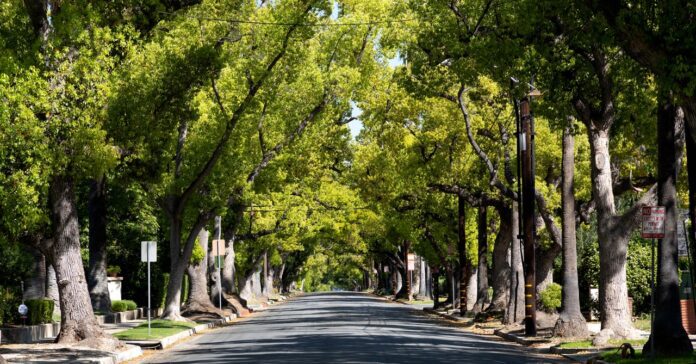“We’re in a position to quantify how results would were other in actual occasions,” says de Guzman. “I do know that projections are for the next choice of excessive warmth days in every of those communities.”
In different phrases: The time to behave is now. Tall timber supply color, for one, however crops on the whole liberate water vapor as they photosynthesize, necessarily “sweating.” Accordingly, a high-income community with a variety of parks and landscaping could be 15 levels Fahrenheit cooler than a low-income, extra industrialized house—like such a lot of well being threats, warmth disproportionately impacts those that are essentially the most disadvantaged. The city warmth island impact varies now not best from community to community, but in addition from block to dam or even space to accommodate. Other development fabrics, like picket and brick, take in and retain the solar’s power in several tactics.
So the software of this type of analysis is to to begin with in finding complete neighborhoods to prioritize for greening, however then to focus on particular puts to position unmarried timber. “We don’t essentially in city spaces plant complete forests—we plant a person tree at a time,” says Portland State College local weather adaptation scientist Vivek Shandas, who research the warmth island impact however wasn’t concerned within the new analysis. “You probably have a restricted quantity of price range, and you already know the place there’s going to be the best affect from the deployment of this, it’s a no brainer in an effort to establish the ones places.”
But it surely’s now not as simple as simply sticking a host of timber within the flooring and calling it an afternoon. LA has launched into a multiyear City Woodland Control Plan to extend its tree cover, particularly in its maximum inclined neighborhoods. It has to rigorously establish places so as to add the crops, but in addition collaborate with the citizens there—for example, with group comments conferences. Some folks may now not need timber out of doors their house: Possibly a department as soon as fell on their automotive, or their sidewalk cracked from underlying roots, lowering the mobility of a grandparent in a wheelchair.
So getting extra timber within the city panorama may be about collaboration and schooling, getting people to grasp the numerous cooling advantages that would neatly save their lives—and, on the very least, cut back their air-conditioning expenses. “You probably have a unfavorable tree tale, we need to do a little schooling on how we’re going to do higher sooner or later,” says Rachel Malarich, the Town Woodland Officer of Los Angeles. “How we’ve realized as an business is to be extra selective about what we put the place, and make it suitable for the web site, or to modify the web site in order that we will plant one thing greater.” For instance, if a given patch of grime is just too small to suit a tree species large enough to offer just right color, most likely the town may remodel the sidewalks to house that, concurrently bettering mobility and lowering native temperatures.
In LA and somewhere else, scientists are dashing to search out tree species that’ll be in a position to resist temperatures 10, 15, twenty years from now—you wouldn’t wish to plant a tree best to find it will probably’t continue to exist within the new local weather. Local weather trade may additionally lend a hand tree pests and illnesses unfold, including but extra precarity to city greenery: A given group could be focused on planting extra in their community’s trademark species of tree—magnolias or what have you ever—however the long run is also increasingly more antagonistic to it.





 #shorts #shortsfeed #nature #youtubeshorts #iciness
#shorts #shortsfeed #nature #youtubeshorts #iciness